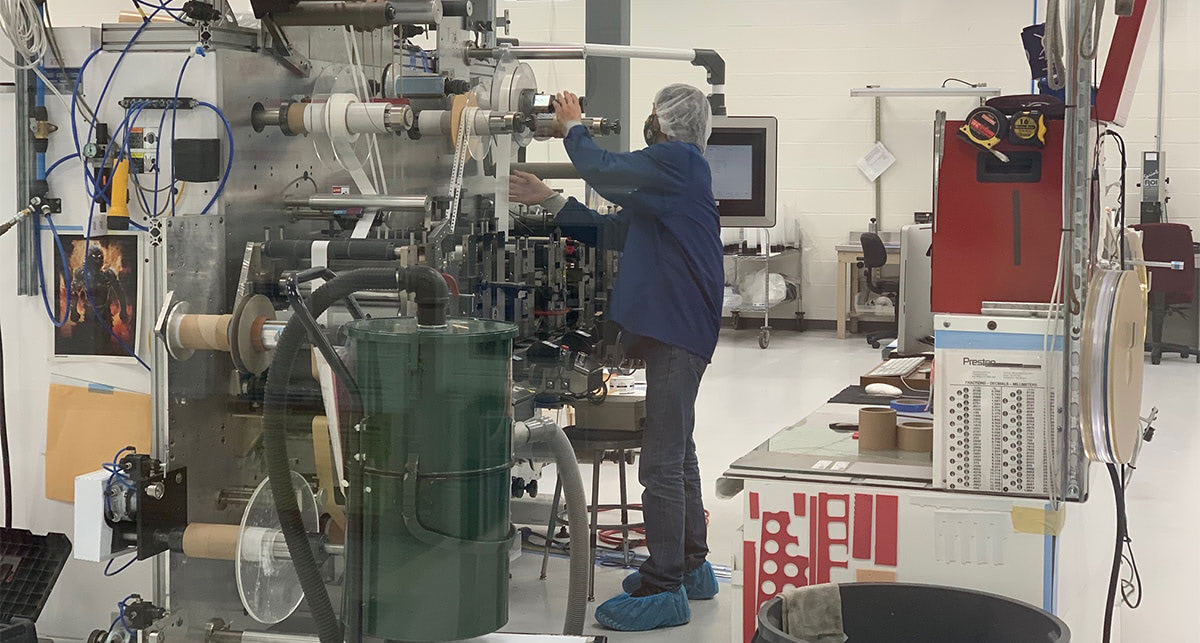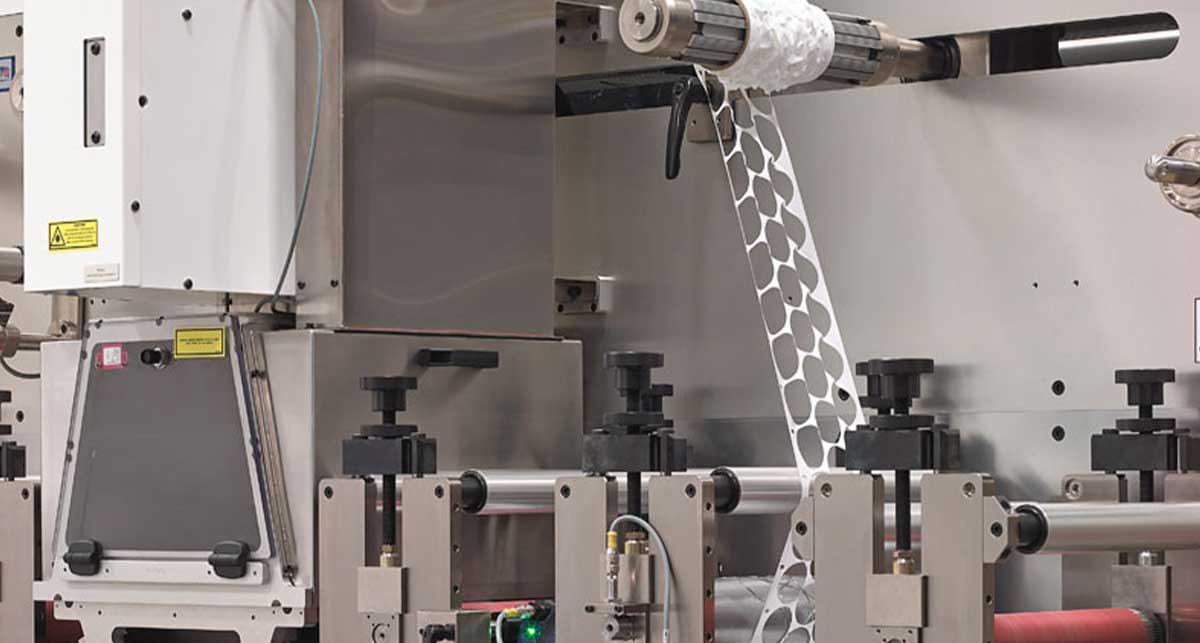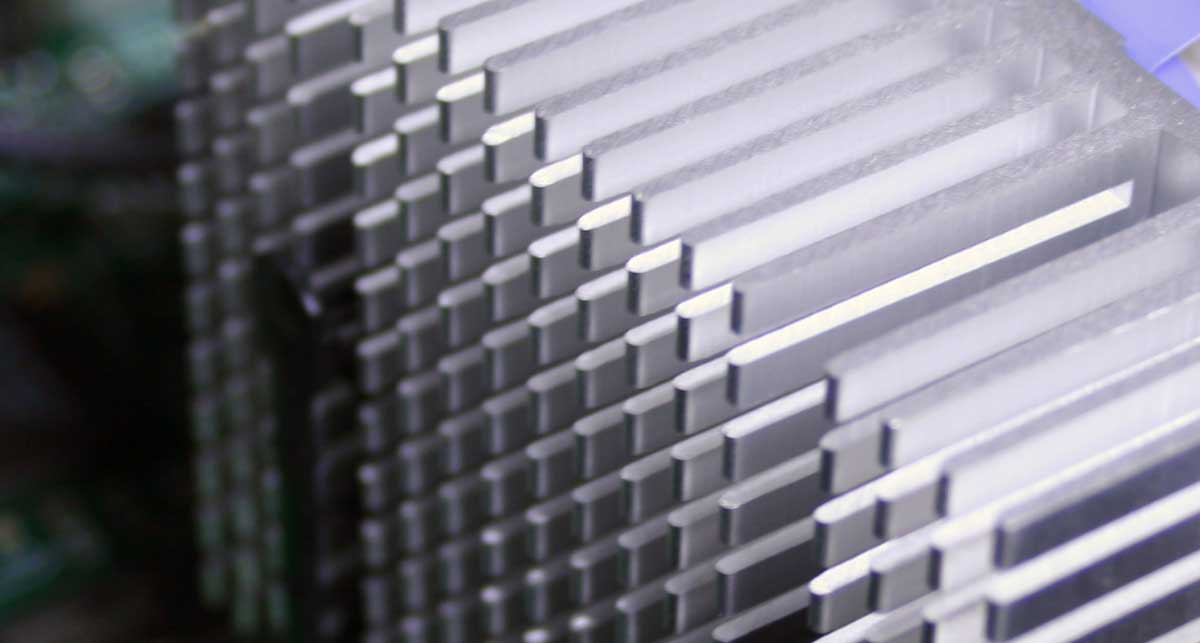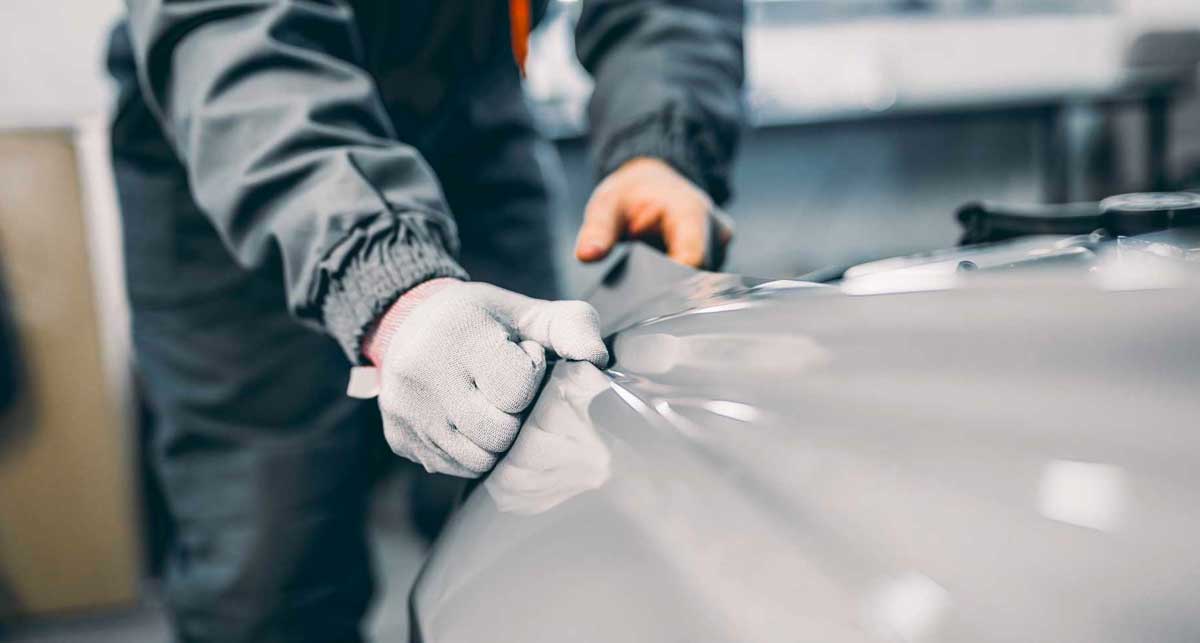What kind of film would you choose for a satellite?
If you work in the electrical industry, you’ve likely encountered polyimide tape—better known as Kapton tape. This material offers numerous advantages in electrical applications across many different industries.
At Strouse, we’ve worked extensively with polyimide tape and know what it takes to ensure its successful use in product design. Before moving forward with production, it’s essential to understand how polyimide tape works and the key factors to consider when making a purchase.
At Strouse, we’ve worked extensively with polyimide tape and know what it takes to ensure its successful use in product design. Before moving forward with production, it’s essential to understand how polyimide tape works and the key factors to consider when making a purchase.
Kapton vs. Polyimide Tape
Kapton is a brand-name version of polyimide tape, so they are essentially the same material. Although it might be the most popular variant used across industries, Kapton tape is far from the only type of polyimide tape.
What Is Polyimide Tape?
Polyimide tape is known for its extreme adhesion as one of the most heat-resistant adhesives available on the market. It performs at peak strength over a range of high temperatures without losing its adhesiveness or leaving leftover residue.
Polyimide tape also has excellent chemical resistance and insulation properties. It's unaffected by acids or oils and keeps electrical components at a consistent temperature, which is why many industries use it to ensure their electronics don't ignite or fall below the required temperature.
a. POLYIMIDE TAPE SPECIFICATIONS
Polyimide tape generally has a thickness of about 0.095mm without the liner, and 0.1mm with it, making it one of the thinnest insulators ever. The tape strength is about 200 kPa, with a dielectric strength of 6.5 kV. It uses a silicone adhesive to ensure the strongest stick. The adhesive strength comes in around 6N.
Polyimide films have a great shelf life: when stored properly, they last about 36 months after the date of manufacture.
b. WHY IS POLYIMIDE TAPE SO EFFECTIVE?
- Polyimide tapes are chemical-resistant, heat-resistant, flexible, and have high tensile strength.
-
- Very few other substances resist heat as well as polyimides.
-
- Polyimide comes in many forms, allowing it to be metalized, laminated, and even punch-formed.
-
- It can be made into various shapes across industries.
-
- Polyimide is a self-extinguishing heat resistor; however, it can still burn.
-
- This makes it even more desirable for specific industries, like aerospace.
- If polyimide catches fire, it quickly extinguishes itself, leaving only the surface level of the tape charred and making it safer than some alternatives.
-
Considering how heat-resistant polyimide is, you might wonder why it isn't more prominent in even more industries or why houses and furniture aren't made from polyimides. Simply put, polyimides are too expensive for everyday production. You would need many polyimides to effectively build a house or piece of furniture, and the costs would climb incredibly high, making it unaffordable for everyday use.
What Is Kapton Tape?
Kapton tape is a polyimide tape developed by DuPont in the 1960s. It is heat- and chemical-resistant, strong, and available in very thin sheets. It also provides electrical insulation and has a low outgassing rate, making it great for high-vacuum applications.
a. WHAT MAKES KAPTON TAPE UNIQUE?
Like other polyimide tapes, Kapton tape is used for insulation, chemical resistance, and heat control, but other factors also make it unique.
- Kapton tape has strong hydrogen bonds to the polar solvents from its manufacturing.
-
- These bonds are made at temperatures as high as 300°C, preparing the final product for high temperatures when applied.
-
- Kapton polyimide film has excellent adhesion properties and leaves no residue when peeled off.
-
- It can stick to challenging surfaces that other tapes and adhesives simply can't.
- Very little pressure is needed for a good stick, making the applicator's job much more manageable.
-
- It’s tough to puncture
b. HOW HEAT RESISTANT IS KAPTON TAPE?
Kapton tape is one of the most heat-resistant tapes out there. But what’s the exact temperature range of its capabilities?
It's recommended that Kapton tape be used in temperatures ranging from -75°C to +260°C. However, Kapton tape has been tested and found to work under much more extreme temperatures. You can use it in temperatures as low as -196°C to as high as 400°C!
Although Kapton tape can be used in these extreme temperatures, it's best to follow the material supplier's and manufacturer's recommendations. Even if unlikely, there’s always a chance of failure.
c. HOW CHEMICALLY RESISTANT IS KAPTON TAPE?
Other insulators and tapes will dissolve and become useless when exposed to certain chemicals. Yet, Kapton tape is highly resistant to many oils, solvents, and acids, so its adhesiveness and insulating properties will not be affected by chemicals.
d. IS KAPTON TAPE CONDUCTIVE?
The conductivity of a Kapton tape depends on its type and thickness. However, some Kapton tape can be used as thermally conductive polyimide film despite its insulating properties and excellent dielectric resistance.
Polyimide and Kapton Tape Uses
Now that you know more about polyimide tape, how is it used? Here's a more in-depth look at the uses of Kapton and other polyimide tapes.
1. AIRCRAFT MANUFACTURING
Double sided Kapton tape is commonly used in commercial and military aircraft manufacturing due to its strength, heat resistance, and weight. It's essential to keep building materials as light as possible when making an aircraft, and Kapton doesn't add much extra weight.
2. SPACESHIPS AND SATELLITES
Polyimide tape is used in spaceships and satellites to keep certain systems running at a consistent temperature.
The New Horizons spacecraft, for example, used Kapton to keep its electronic temperatures between 10°C and 30°C. The ship could travel more than 3 billion miles (i.e., to Pluto) thanks to Kapton. Kapton ensures the electronic temperatures don't spike or lower, allowing the vessel to run smoothly. Plus, in an aluminized form, Kapton makes up the sun shield of the James Webb Space Telescope.
3. CAR MANUFACTURING
Many car manufacturers use Kapton tape for insulation and general heat resistance. Polyimide tape can wrap sensors, coils, diaphragms, and switches in seat heaters, ensuring they stay at a set temperature and not cause fires.
4. ELECTRONICS AND ELECTRICAL INSULATION
Kapton tape is also used extensively in electrical work, primarily as insulation. This includes capacitor and transformer insulation, coil insulation, and magnetic wire insulation. Kapton tape is also used as a temperature mask during powder coatings.
Anti-static polyimide tape is also frequently used in circuit board construction and other applications that produce abundant static electricity.
5. 3D PRINTING
A printing object moving can lead to unsuccessful and deformed 3D prints. Kapton tape is used to 3D print objects by laying it out over the printing surface of the 3D printer to ensure the printed object doesn't shift around during the process.
Kapton and ABS, the material used in 3D printing, adhere together well, making Kapton tape valuable for 3D printer manufacturing purposes.
6. X-RAY MACHINES
Kapton experiences very low degradation from the effects of radiation. It can resist the high heat of the X-rays while allowing them to transmit. As a result, Kapton can be used in X-ray tubes and synchrotron light lines.
Where Can I Get Polyimide Tape?
Finding Kapton or other polyimide tapes depends on what you’re looking for. For instance, it might be worth contacting a supplier if you want generic rolls to cut and apply by hand.
Alternatively, if you’re looking for cut pieces, customized lengths, or adhesively laminated Kapton tape, you’ll want to seek a manufacturer or adhesive converter who provides flexible material cutting services.
Manufacturers like Strouse will provide you with polyimide tape in just about any format you desire. This mainly applies to those who want their Kapton tape to be custom-fitted. Otherwise, you may seek out a flexible material supplier directly.
If you’re interested in learning more about Kapton polyimide tape, you can find more information and the specific types listed above, as well as information about insulating adhesives and material selection guides, in our Learning Center.
Originally published: January 13, 20






